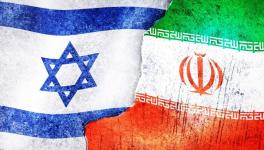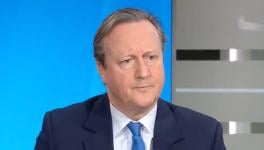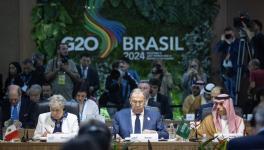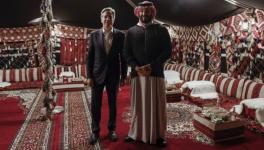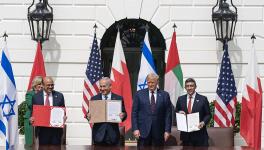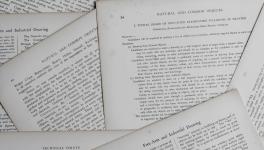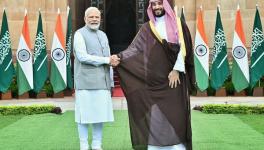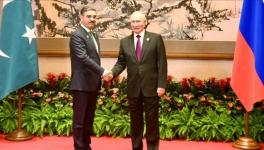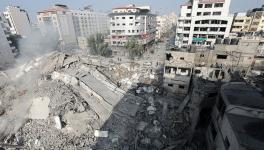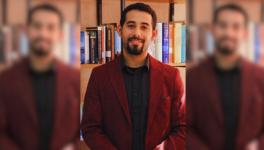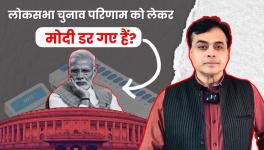FBI’s Declassified 9/11 Documents Raise More Questions About Investigation
A few days ago, the United States Federal Bureau of Investigation (FBI) released a newly declassified 2016 document relating to alleged connections between some Saudi citizens in the United States and two of the 9/11 attackers. It was a long-suppressed FBI report on Saudi Arabia’s ties to the 9/11 plot that revealed that some Saudi religious officials stationed in the United States had significant connections to two of the hijackers. The 16-page redacted report summarises the FBI’s investigations as part of their operation, codenamed Encore.
RECAP OF THE ATTACK
As many as 15 of the 19 plane hijackers, who had taken over four American civilian aircraft on September 11, 2001, were Saudi nationals. In a coordinated attack, two of these hijacked aircraft were used as missiles that hit and brought down the famous Twin Towers in the Manhattan area of New York. Another crashed into the Pentagon building that houses the US Department of Defense. The fourth one crashed in a field in Pennsylvania as its passengers tried to overpower the hijackers to regain control of the aircraft and divert it from its intended target, suspected to be the Capitol building in Washington. The attacks caused mass casualties, numbering over 3,000.
VICTIMS’ RELATIVES DEMAND
For a long time, the relatives of these victims had been demanding de-classification and release of these files while alleging the Saudi government’s involvement and that it had advanced knowledge but did nothing to stop the multi-pronged attack. But the documents, released on the 20th anniversary of the deadliest terror strike, do not provide evidence linking the Saudi Kingdom to the plot. The Saudi government has continuously denied any link with the attackers and termed these charges “false and malicious”. The allegations arose as 15 of the 19 terrorists were Saudis, and Al Qaeda chief Osama bin Laden also belonged to a very influential Saudi family. His outfit was alleged to have received huge funds from wealthy Saudis in the late 1980s and 1990s.
FBI REPORT
However, the 2016 FBI document leaves several key questions unanswered, including the role of a well-connected Saudi who had allegedly provided logistical support to two of the hijackers, identified as Khalid al-Mihdhar and Nawaf al-Hazmi. These two were known Al Qaeda operatives whose names were in both the CIA and the National Security Agency databases. While CIA officials had placed the two men under surveillance in Kuala Lumpur, Malaysia, the agency did not alert the FBI about their presence in the US until August 2001, a few weeks before the attacks. Mihdhar and Hazmi were the first hijackers to fly into Los Angeles on January 15, 2000, and settle down at San Diego County in California. Interestingly, they both entered the US under their original names and cleared the immigration, even when they were listed in the CIA and NSA databases. No red flag was raised. Reports in major US newspapers, agencies and journals, including ProPublica, Independent, ABC News and the New York Times, quoted the 2016 documents on the entire matter.
Although Mihdhar and Hazmi were seasoned Qaida operatives, they did not speak or read English and were unable to navigate around the US “without considerable help”, the Encore investigators (FBI team) learnt. They believed that a support network of Saudi officials and other extremists in Southern California was mobilised before their arrival in Los Angeles.
Among the new evidence cited in the 2016 report are telephone records, which showed that a middle-aged Saudi graduate student, Omar al-Bayoumi, helped the duo settle down in a San Diego apartment. Bayoumi, who rarely attended classes, worked earlier for the Saudi Defence Ministry, particularly its civil aviation department. Bayoumi was in contact with a Saudi imam stationed in the US, who, in turn, allegedly had connections with other Qaida operatives. This man was identified as Fahad al-Thumairy, who at the time was an accredited diplomat at the Saudi consulate in Los Angeles. The two men left the US weeks before the attacks and have consistently denied any wrongdoing.
The media reports said Bayoumi found Mihdhar and Hazmi an apartment in San Diego and loaned them money to rent it. He also helped them get English classes and flying lessons and introduced them to a circle of other Muslims, including the Al Qaida cleric, Anwar al-Awlaki. Awlaki, who was killed in 2011 in Yemen by an American drone strike, was a key organiser for the terror outfit.
The 2016 report also mentioned telephone records that showed Bayoumi was in touch with another Saudi religious official, Mutaeb al-Sudairy, who was then assigned to the Saudi Embassy in Washington. Sudairy belonged to a prominent Saudi family and had travelled extensively in the United States as a Muslim missionary. Significantly, “Bayoumi called Sudairy five times” during the crucial period when the hijackers met him in Los Angeles, and he helped them move to San Diego, the reports quoting the 2016 document said.
Right after the 9/11 attacks, Bayoumi decamped to Birmingham, England, with his wife and children. At the FBI’s request, he was detained by the New Scotland Yard on September 21, 2001. Although he had gone to ostensibly study for a doctorate in business ethics, his main job seemed to be running a Saudi student association. FBI agents flew to the UK and questioned him. But he was not forthcoming. Days later, and even before FBI agents could thoroughly question him, Bayoumi was freed by the British government.
Bayoumi’s contact Sudairy caught the FBI’s attention again in 2010. While examining old phone activity of Bayoumi, an analyst on the Encore FBI team discovered links to Sudairy. He learned that Sudairy and another official in the religious ministry had applied for new US visas to study English at an American university. This was strange because the two Saudis were educated, wealthy officials who had lived and worked in the United States years earlier. Because of their suspected extremist links, the FBI agents felt that the plan to study could be a cover for something more nefarious, a ProPublica report said. The FBI then decided to put the two of them under full-time surveillance.
But the episode ended when CIA officers in the Saudi capital of Riyadh “objected strongly to the FBI plan”. For reasons that have remained unclear, the two Saudis cancelled the visit at the last minute. Former FBI investigators felt they lost a significant opportunity to learn more about the suspected role of Saudi officials in the support network of the 9/11 hijackers, the ProPublica report said.
The ABC News, in a 2006 report, also alleged that the CIA knew about the possibility of a terror attack in the US soil as they had tracked the two hijackers, Midhar and Hamzi, for quite some time in Malaysia, “where it was later determined, terrorists were plotting the attack on the (aircraft carrier) USS Cole.” The news channel’s January 7, 2000, report said, “If San Diego FBI agent Steven Butler had known what the CIA knew about possible terror attacks, he may have had the best chance to stop the September 11, 2001, hijackers, investigators told ABCNEWS.” The report said Butler had Midhar and Hamzi “under his nose for some 18 months, but neither he, nor anyone in the FBI, was warned by the CIA”.
Inputs like Midhar and Hazmi, who were tracked by the CIA, entering the US under their own names or the CIA not sharing intel on these two hijackers with the FBI, or the British government freeing Bayoumi before the FBI could fully grill him, raise even more questions about why the United States authorities were not able to or chose not to pursue such leads more aggressively. The victims’ relatives are now asking the same.
(Amitabha Roychowdhury was the deputy executive editor of Press Trust of India who has extensively covered internal security, defence and civil aviation. The views are personal.)
Get the latest reports & analysis with people's perspective on Protests, movements & deep analytical videos, discussions of the current affairs in your Telegram app. Subscribe to NewsClick's Telegram channel & get Real-Time updates on stories, as they get published on our website.









